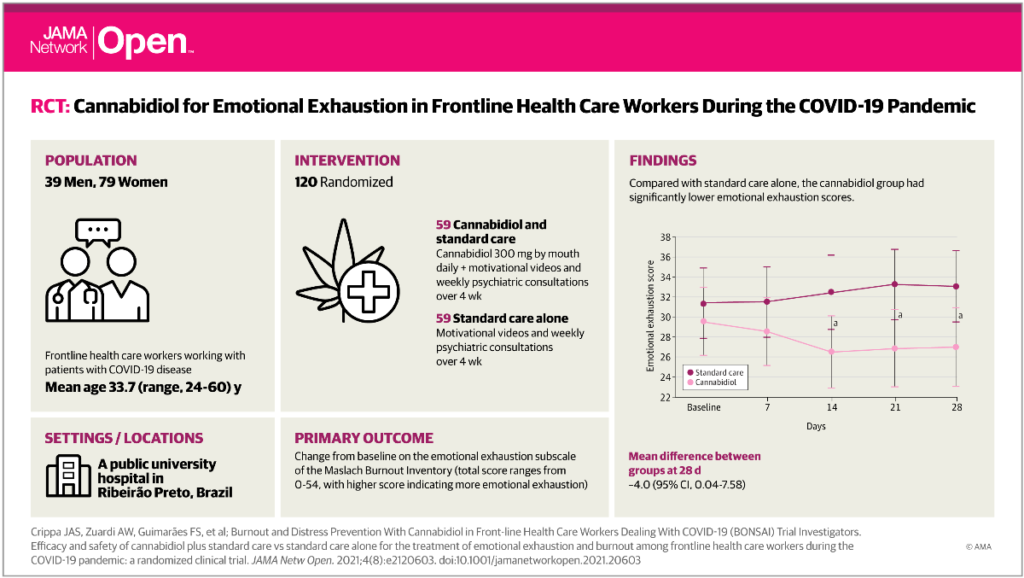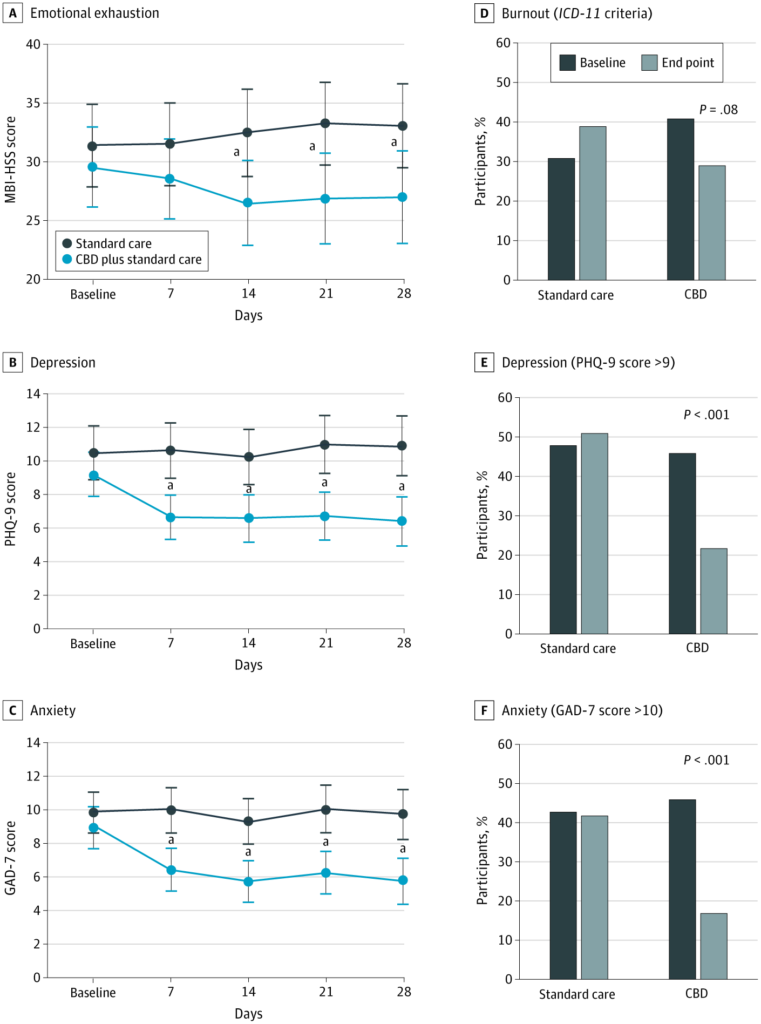From mid-summer to late fall in 2020, the United States saw an explosion of Covid-19. Total cases rose from approximately 2.1 million to more than 10.6 million, with greater than 240,000 deaths. In the U.S., data from the CDC and other sources (including High Yield Insights) captured the crushing impact of the pandemic on mental health. Americans sought relief from the anxiety and ever-present threat of the pandemic in many forms. As has been widely reported, consumers have turned to cannabis in record numbers. (In a bit of positive news, neither the use of cannabis or incidence of binge drinking rose substantially among adolescents.) Frontline healthcare workers especially were suffering from burnout and emotional exhaustion.
From June to September 2020, Mental Health America ran a survey on the mental state of healthcare workers in the United States. The results were not unsurprising: 93% were experiencing stress, 86% reported experiencing anxiety, 77% reported frustration, 76% reported exhaustion and burnout, and 75% said they were overwhelmed.
Putting a score to someone’s wellbeing is not easy. However, if quantified, the data can provide a means to evaluate treatment options. Those options would obviously include the use of pharmaceuticals like antidepressants. Yet with the ever-present threat of Covid, and the unrelenting workload and stress, the adverse effects of medications might do more harm than good for some. Further, many are increasingly seeking alternatives to prescription drugs and natural wellness solutions. For instance, High Yield’s 2020 CBD consumer study found that many consumers reduced if not stopped their use of over-the-counter and prescription medications for sleeplessness after adopting cannabidiol products. Covid has unquestionably drawn attention to CBD in that as many as 9 million new consumers started using cannabidiol products in 2020 to address many of the same issues listed above. The trend has continued well into this year. Recent projections for 2021 estimate growth of 55%, potentially raising the sector’s take to almost $6.3 billion.
But the stop-and-go pace of federal regulatory action on hemp-derived CBD has slowed the industry’s ability to gather actionable data from research like clinical trials. (Even so, innovative efforts such as the liver toxicity study by Validcare are underway to help provide regulators with education and evidence.) Lacking sufficient support stateside, cannabidiol supporters are eyeing data published internationally. A recently released study drawing from a volunteer program among frontline healthcare workers in Brazil may prove groundbreaking.

Efficacy and Safety of Cannabidiol Plus Standard Care vs Standard Care Alone for the Treatment of Emotional Exhaustion and Burnout Among Frontline Health Care Workers During the COVID-19 Pandemic
The study first appeared on JAMA open in August and can be found online here. To measure burnout, a 22-item survey known as the Maslach Burnout Inventory enables researchers to gauge emotional exhaustion, depersonalization, and a low sense of personal accomplishment. At multiple points throughout the survey, respondents are asked to rate the frequency of various mental states ranging from “a few times a year or less” to “every day”. From mid-June to mid-November of 2020, the approximate duration of the study, Brazil saw an explosion of Covid-19. The total case count spiraled from over 850,000 to over 5.7 million within those five months. Like elsewhere, the pandemic was burning through the country. By November 12, Covid had claimed the lives of 164,281 people in Brazil. The study, tragically, came at a time when the benefits of CBD would be subjected to an extreme pressure test. The results are promising.
 Results for Emotional Exhaustion, Depression, and Anxiety. Maslach Burnout Inventory–Human Services Survey for Medical Personnel. The difference between the treatment and control arms was statistically significant.
Results for Emotional Exhaustion, Depression, and Anxiety. Maslach Burnout Inventory–Human Services Survey for Medical Personnel. The difference between the treatment and control arms was statistically significant.
The key takeaway among the study’s findings is this: “CBD therapy reduced symptoms of burnout and emotional exhaustion among health care professionals working with patients during the COVID-19 pandemic.”
Those interested in a deep dive and expert-driven Q&A about the impact of the study are encouraged to attend a webinar presented by the Council for Federal Cannabis Regulation (CFCR) this Thursday, September 23.
To attend, register here. A recording of the webinar will be available on the CFCR website shortly after.
The webinar will feature Vicki Seyfert-Margolis, Chairwoman for Science & Regulatory Affairs Committee for CFCR and former FDA adviser, along with moderators Jack Jacobson from Thompson Coburn LLP and CFCR’s own Executive Director Sarah Chase.
The post Putting CBD to the Test: Study In Brazil Demonstrates Safety, Efficacy appeared first on Cannabis Business Executive - Cannabis and Marijuana industry news.
Copyright
© Cannabis Business Executive

